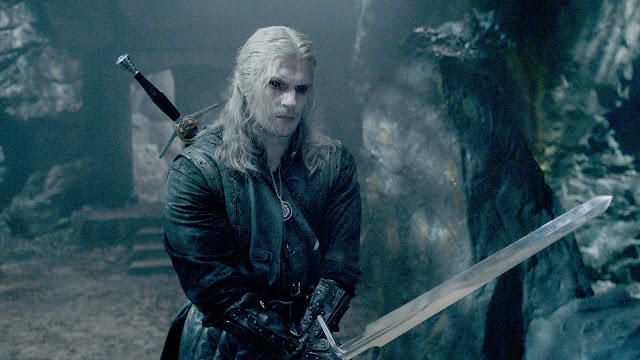Netflix’s adaptation of The Witcher has, in the last year, been through the promotional ringer. For a variety of reasons, it was announced that star Henry Cavill (a self-admitted fan of the show’s source material, and one of the series’ initial draws) would leave the show after its third season, to be replaced by Liam Hemsworth. That news, and the fact that it was announced so early, casts a long shadow over Cavill’s last season, which has been split into two parts by Netflix, undoubtedly (among other reasons) to milk his remaining time as Geralt of Rivia. I speak for many other Witcher fans that he is usually one of the best parts of the show, and his exit has the potential to strip it of what made it great in the first place.
 |
| Image courtesy of Netflix |
Alas, we won’t know for sure how Cavill’s tenure ends until the second half of the season drops in July, but until then, we have a definite jumping-off point for his final arc. And it pains me to say it — I liked Season One, and adored Season Two — but The Witcher is rapidly losing a lot of the steam it gained in the first two seasons.
It begins with Geralt (Cavill), his on-again-off-again mage flame Yennefer (Anya Chalotra) and their ward Ciri (Freya Allan) on the run from omnipresent assailants. They’ve become a hodge-podged found family, only able to trust each other as they seek to get Ciri to safety.
Part of the series’ previous strengths, including politics of the magical world in preparation for an ever-oncoming war, feel tired now. At the start of the third season, I found myself far less invested in what eventually happens — it’s possible that it’s spread itself too thin with too many disparate storylines that don’t fit together as well as the show hopes they do.
 |
| Image courtesy of Netflix |
Still, there are glimmers of potential. Charming bard Jaskier (Joey Batey) is once again the MVP, but he once again doesn’t get nearly enough to do as he should. Ciri’s increasingly frequent visions show a future that could be a fascinating endgame, but it feels like the show is trying to use those visions as a way to keep us drawn in and invested, when the show should be able to do that on its own. I've never been a fan of overusing visions as a story device, and that’s a trap The Witcher falls into too many times this season.
Perhaps the show’s biggest problem this season is an influx of characters that are hard to care about. Since there are so many, they don’t get nearly enough screen time to develop, and since the show has strayed away from being an anthology, there are many more plot threads (and thus, different characters populating those threads) that are increasingly difficult and exhausting to keep track of. Plus, there are a few odd casting choices for this season’s new players, including Robbie Amell, who sticks out like a sore thumb in this high fantasy reality.
_RT.jpg) |
| Image courtesy of Netflix |
The Witcher Season 3 Vol. 1 is streaming on Netflix.

No comments:
Post a Comment